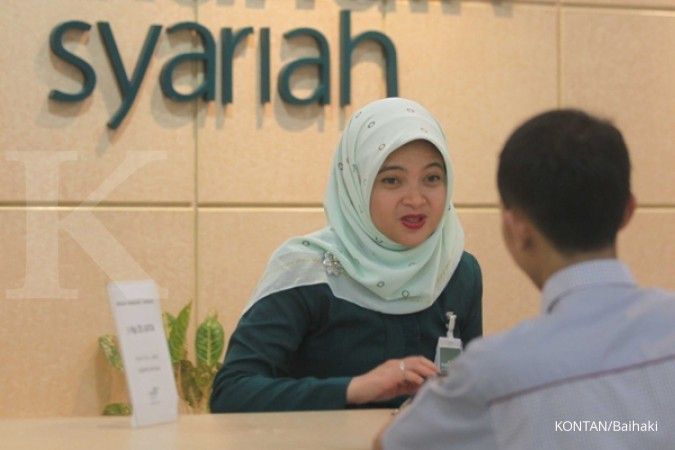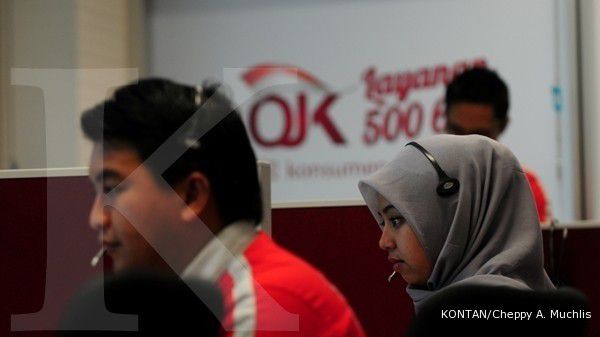JAKARTA. The Financial Services Authority (OJK) launched on Tuesday a nationwide campaign to encourage the development of Indonesia’s still shallow sharia-compliant capital market with new initiatives and regulations.
A roadmap, new and revised regulations as well as incentives and campaigns to raise awareness are in the pipeline for the sharia capital market. The regulator declared the year 2015 as “the year of sharia capital market” in the world’s largest Muslim country. However, shares of Islamic finance remain low, especially when compared with neighbor Malaysia.
“The roadmap will focus on improving regulations, market supply and demand, human resources, promotion and education as well as policy synergy with related stakeholders,” OJK commissioner for capital market supervision Nurhaida said at a press conference. The “sharia capital market roadmap” will last five years and serve as a guideline for all stakeholders.
Outdated infrastructure and a lack of understanding of sharia-based financial products are the main roadblocks that have hindered growth of the sharia capital market, according to Nurhaida.
As of Feb. 6, corporate Islamic debt papers (sukuk) only accounted for 3.2 percent or Rp 7.1 trillion (US$560 million) of the country’s overall outstanding corporate bonds. The government sukuk is 10.6 percent (Rp 206.7 trillion) of the total government debt papers.
In the stock market, sharia mutual funds have Rp 11.25 trillion in outstanding accounts for 4.63 percent of the country’s total mutual funds, according to OJK data.
The OJK would ask capital market industry practitioners to provide input during the process of laying out the road map and in arranging regulations, Nurhaida said.
The financial regulator has planned to issue six new regulations on the sharia capital market this year, based on existing regulations, according to Sarjito, OJK first deputy commissioner for capital market supervision.
“I hope that the review of the [existing] regulations and at least one out the six new regulations will be completed in the first half of this year,” he added.
The OJK and Bank Indonesia (BI) are discussing the possibility of allowing the trade of short-term sukuk in a move that could both diversify sharia financial products and help sharia banks raise cash in the market.
The OJK is also planning to discuss with the Finance Ministry the need to provide incentives so that investors and companies would be more attracted to issuing or buying more sharia capital market products in an attempt to boost the industry.
Malaysia could be seen as the prime example of a country that has been successful in boosting its sharia financial industry through an integrated set of incentives, Sarjito said.
“Malaysia has 12 tax incentives to support its sharia financial industry from the side of investors as well as companies. Currently, Malaysia is the world’s top player in sukuk, it has reached 50 percent of its total corporate and government bonds,” he added.
Indonesia’s corporate sukuk market remains dull. The market is 0.4 percent the size of Malaysia’s. Experts have called on regulators to approve new products to boost the market for sharia-compliant corporate bonds.
Meanwhile, as an initiative for raising awareness, the OJK has launched a public competition from now until the end of March to create a logo and tagline for the “year of sharia capital market” campaign. (Grace D. Amianti)
2015, year of sharia capital market: OJK
February 11, 2015, 01.50 PM
/2014/11/24/1221598075p.jpg)
ILUSTRASI. Bisnis Vape: Penjualan rokok elektrik (vape) di Depok, Jawa Barat, Senin (16/01/2023). Data Kemenperin menyebutkan, ada sekitar 2,2 juta pengguna hasil pengolahan tembakau lainnya (HPTL), termasuk rokok elektrik. Jumlahnya bertambah sekitar 40% dari total pengguna tahun 2021. KONTAN/Baihaki/16/01/2023
Source: The Jakarta Post
| Editor: Hendra Gunawan
Latest News
-
February 11, 2026, 02.14 PM
Indonesia Arrests 11 for Alleged Corruption Over Palm Oil Exports
-
February 10, 2026, 05.28 PM
Indonesia Says Proposed Gaza Peacekeeping Force Could Total 20,000 Troops
-
February 10, 2026, 02.44 PM
Indonesia Distributes $648 Million in Subsidies for Palm Oil Replanting Programme
-
February 10, 2026, 09.47 AM
FTSE Russell Postpones Indonesia Index Review
-
February 10, 2026, 06.42 AM
GLOBAL MARKETS-Stock Indexes Gain with US Technology Shares, Yen Strengthens
-
February 09, 2026, 10.13 PM
Gold Rises as Dollar Slips, Focus Turns to US Jobs Data
-
February 09, 2026, 05.55 PM
Indonesia to Hold Follow-up Meeting with MSCI This Week after Market Rout
-
February 09, 2026, 08.05 AM
GLOBAL MARKETS-Asia Rallies as Japan Shares Surge to Record Peak
-
February 08, 2026, 02.30 PM
South Korean Crypto Firm Accidentally Sends US$44 Billion in Bitcoins to Users












